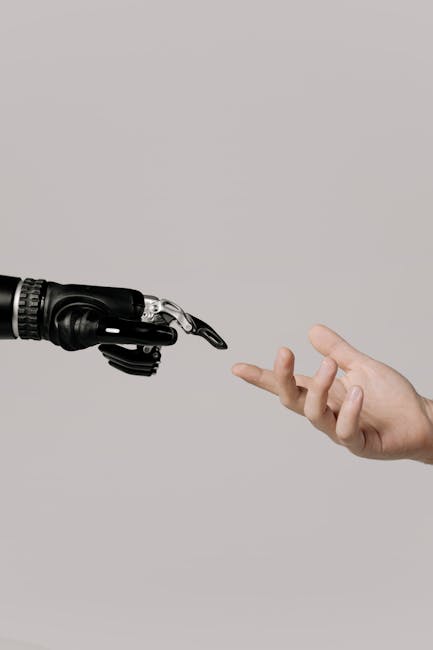AI Tinkering Takes Hold: Consumers Embrace Cutting-Edge Technology in 2025
The year 2025 has witnessed a dramatic shift in the relationship between consumers and artificial intelligence. No longer relegated to the realm of tech giants and research labs, AI tools are increasingly accessible and integrated into everyday life, leading to widespread experimentation and adaptation by everyday users. This burgeoning trend presents both opportunities and challenges, raising crucial questions about data privacy, ethical considerations, and the future of technological development.
The Democratization of AI Tools
The proliferation of user-friendly AI platforms and tools is a key driver behind this trend. Numerous companies are offering intuitive interfaces and pre-trained models, removing significant technical barriers to entry. This ease of access enables individuals with varying levels of technical expertise to engage with sophisticated AI technologies. This democratization has led to an explosion in innovative applications, ranging from personalized education tools to creative content generation and automated home management systems.
Implications of User-Driven Innovation
This hands-on approach is accelerating the evolution of AI in unforeseen ways. User feedback, often overlooked in traditional development cycles, now fuels iterative improvement and adaptation. This grassroots innovation is shaping the future trajectory of AI, moving beyond the confines of established research paradigms. The resulting rapid evolution presents both exciting possibilities and potential risks.
Emerging Ethical Concerns and Data Privacy
The widespread adoption of AI by consumers raises significant ethical concerns. Issues surrounding data privacy, algorithmic bias, and the potential for misuse are increasingly prominent. While regulations are beginning to emerge, the rapid pace of technological advancement often outpaces the legislative response. This disparity creates a complex environment where individual users must navigate potential risks with limited guidance.
Protecting User Data in the Age of AI
The collection and use of personal data are critical aspects of AI functionality. Consumers often unknowingly provide vast quantities of information to AI-powered applications. Safeguarding this data requires robust security measures and transparent data handling policies. Ongoing debates regarding data ownership, consent, and the potential for data breaches remain central to the ongoing conversation about responsible AI development and usage. Stronger consumer awareness and regulatory frameworks are vital to mitigate risks.
The Economic Impact of Consumer AI Adoption
The integration of AI into everyday life is transforming several sectors. From increased productivity in the workplace to novel forms of entertainment and personalized healthcare solutions, the economic implications are far-reaching. However, the displacement of certain job roles due to automation remains a significant concern. This requires proactive measures such as retraining initiatives and societal adaptation to navigate the shifting economic landscape.
Job Market Disruption and Adaptation
The integration of AI into various sectors may lead to job displacement in certain areas. However, the emergence of new roles related to AI development, maintenance, and ethical oversight is likely. The economic impacts are complex and require careful analysis to ensure a smooth transition for workers. Training programs that focus on adapting skills to the new technological environment will be critical for mitigating the negative consequences of job displacement.
The Future of Consumer AI Interaction: Predictions for 2025 and Beyond
Experts predict that the trend of consumer AI tinkering will only accelerate in the coming years. The increasing sophistication of AI models combined with the continuous improvement of user interfaces will make advanced technologies even more accessible. This convergence is likely to fuel even greater creativity and innovation, but it also calls for sustained focus on ethical considerations and responsible development.
Key Predictions for the Future of Consumer AI:
- Increased personalization: AI will become even more tailored to individual needs and preferences.
- Enhanced accessibility: AI tools will become simpler and more intuitive, accessible to a wider range of users.
- Growing ethical concerns: Debates surrounding data privacy, bias, and accountability will intensify.
- Regulatory landscape evolution: Governments will work towards establishing robust frameworks to govern AI development and usage.
- Economic transformation: AI will continue to reshape various industries, creating new jobs and opportunities while displacing others.
Conclusion: Navigating the Uncharted Territory of Consumer AI
The integration of AI into the daily lives of consumers represents a significant technological shift. While the potential benefits are immense, responsible development and ethical considerations remain paramount. The ability to navigate this uncharted territory effectively will require collaborative efforts from developers, policymakers, and consumers alike. Transparency, accountability, and a proactive approach to addressing emerging challenges are essential to harnessing the transformative potential of AI while mitigating potential risks. The coming years will undoubtedly bring further developments in this rapidly evolving field, underscoring the need for ongoing vigilance and adaptation.

